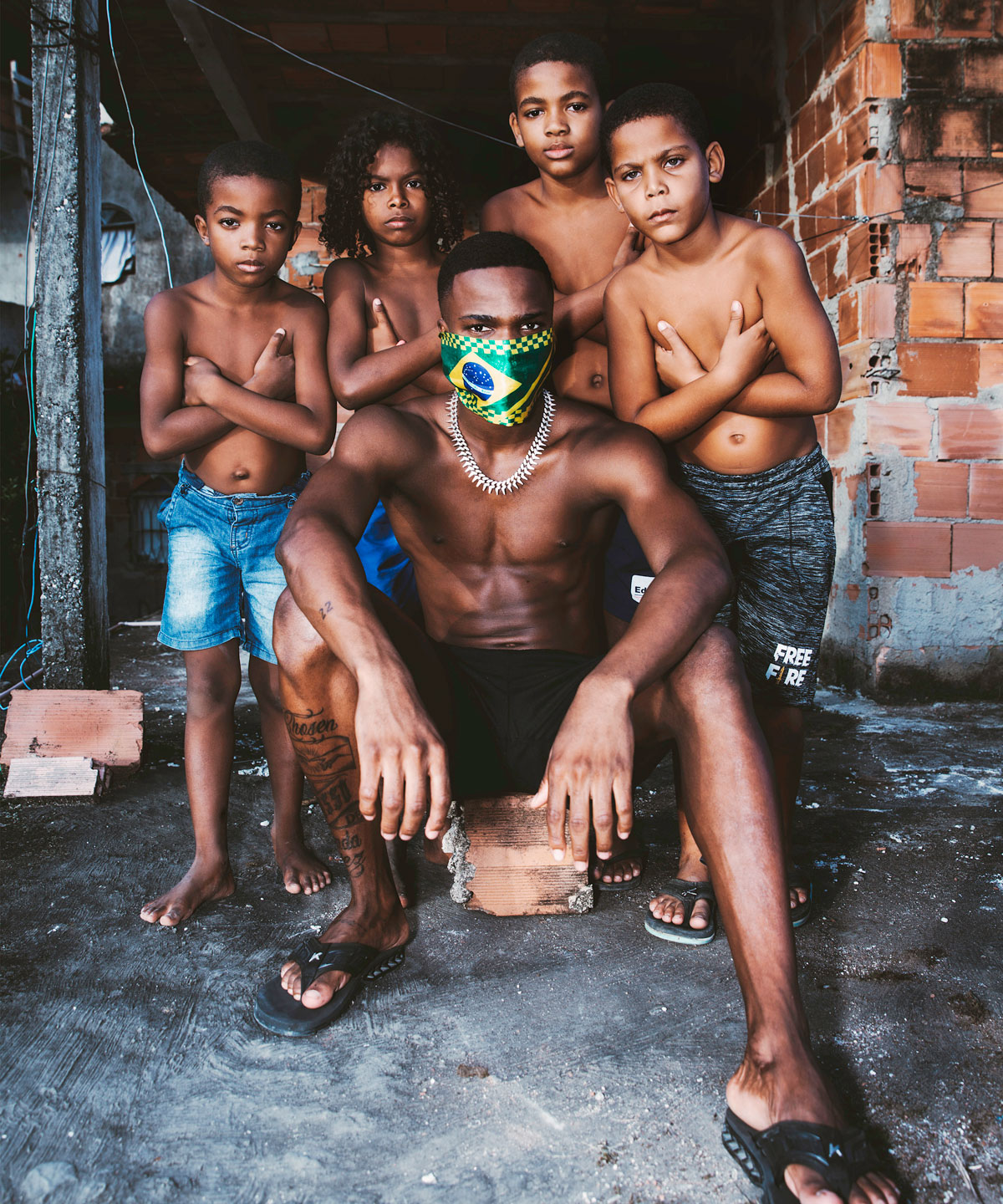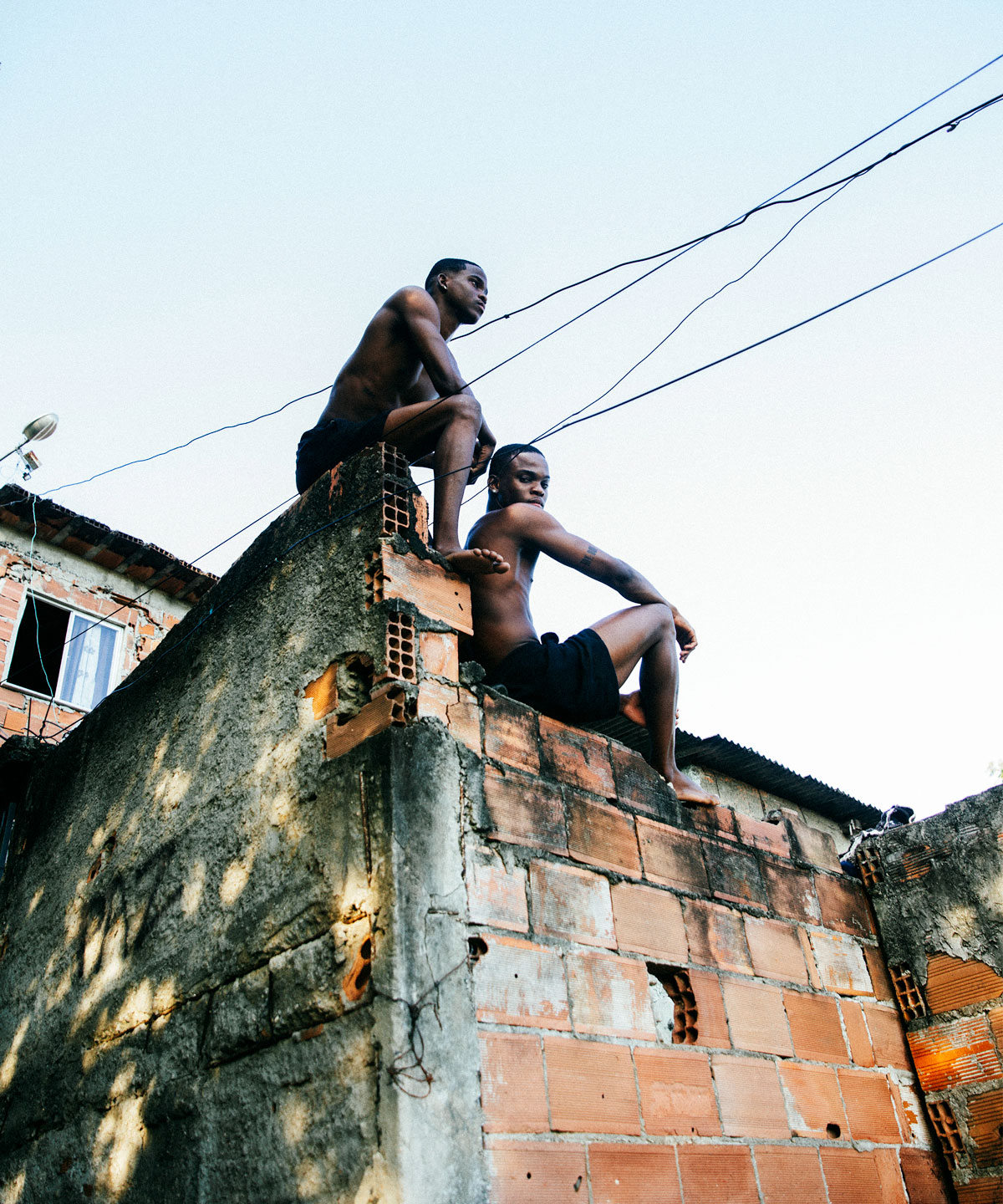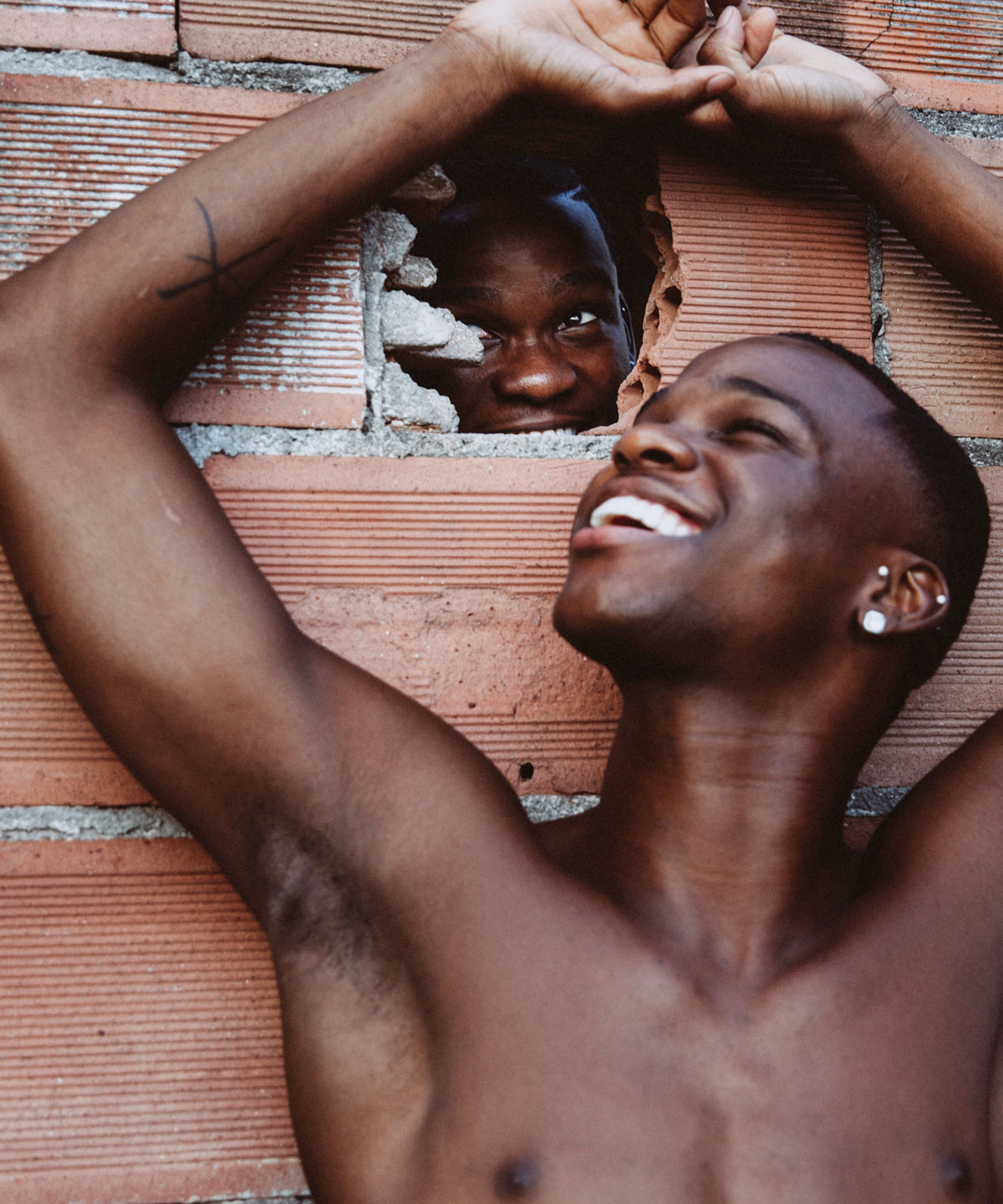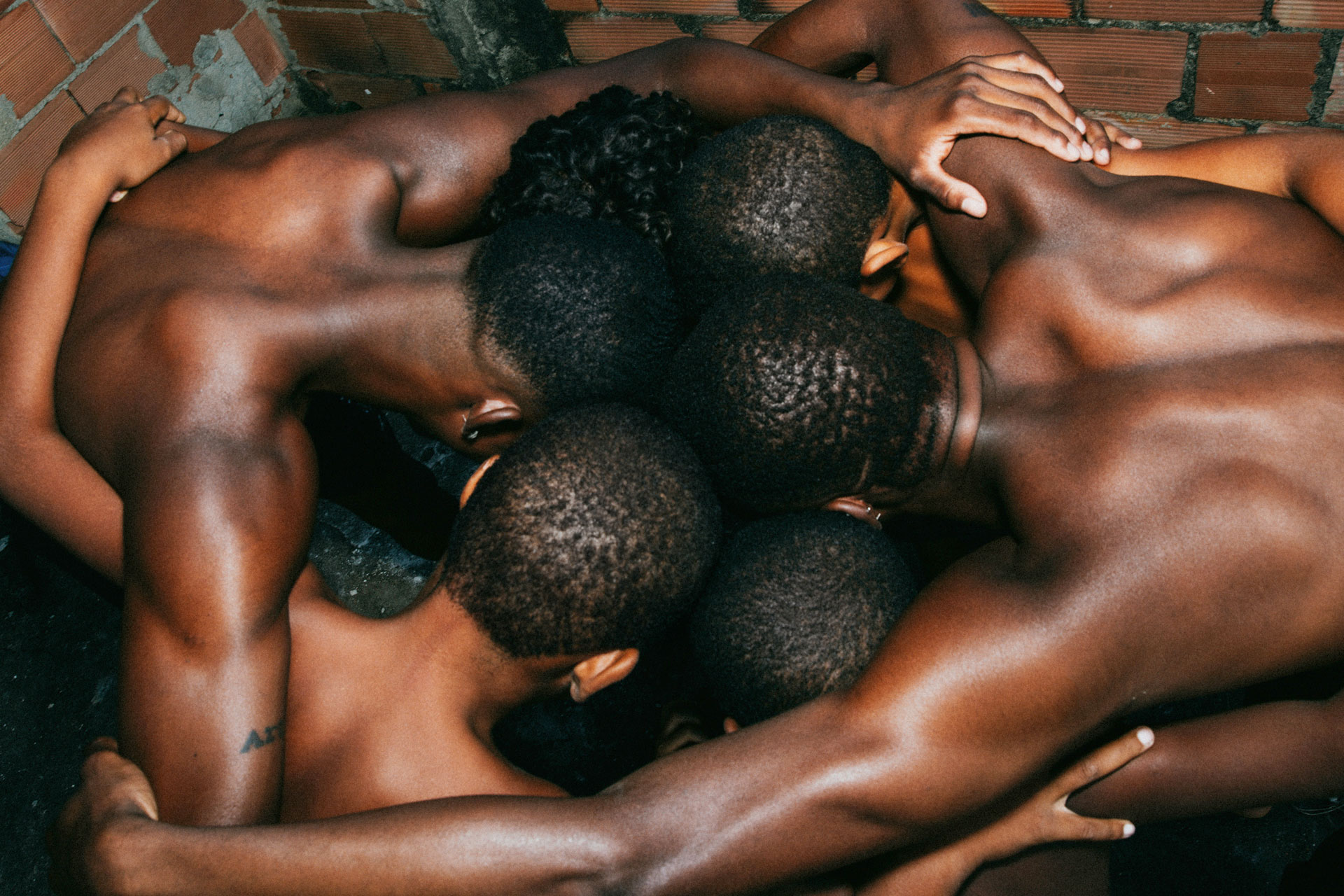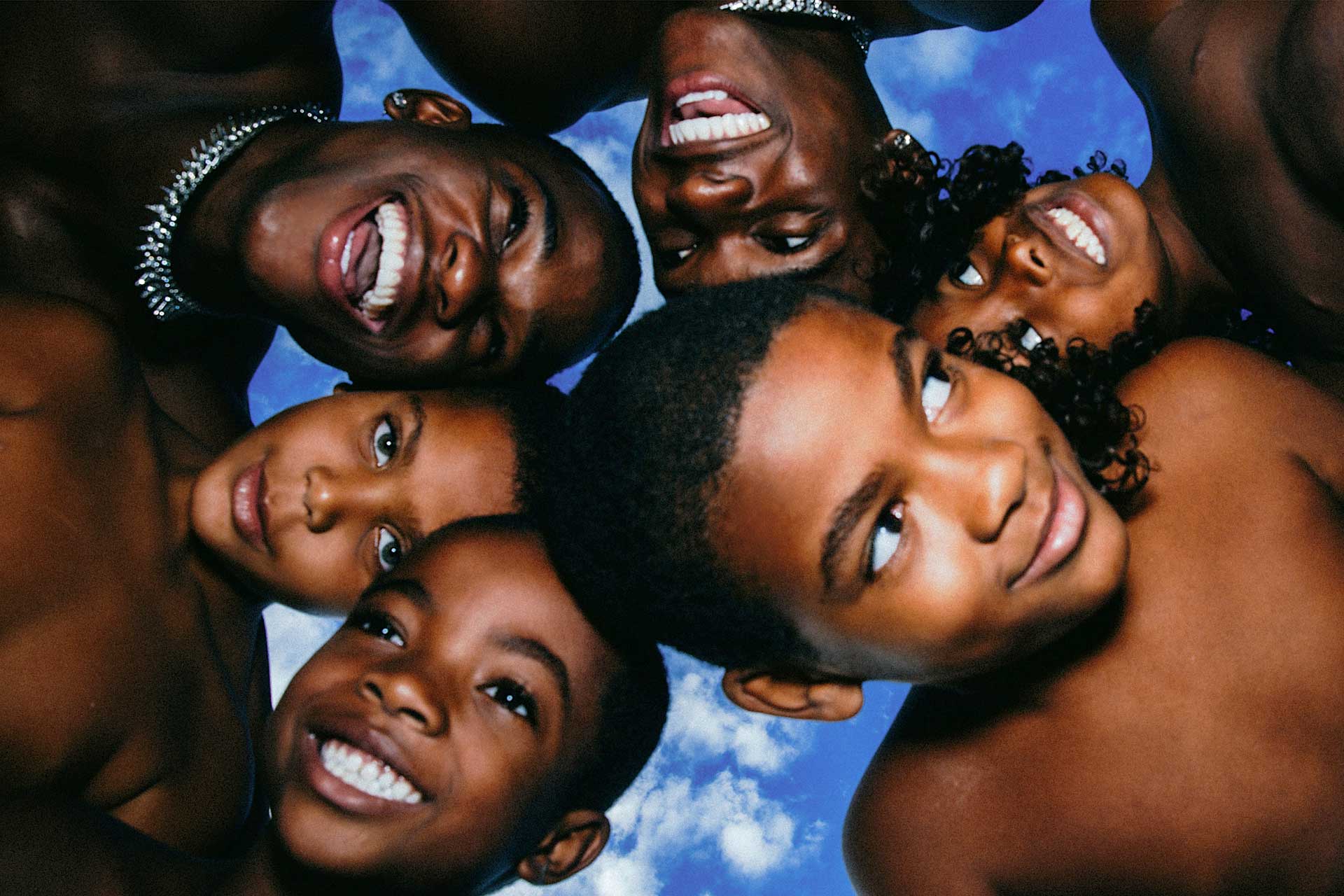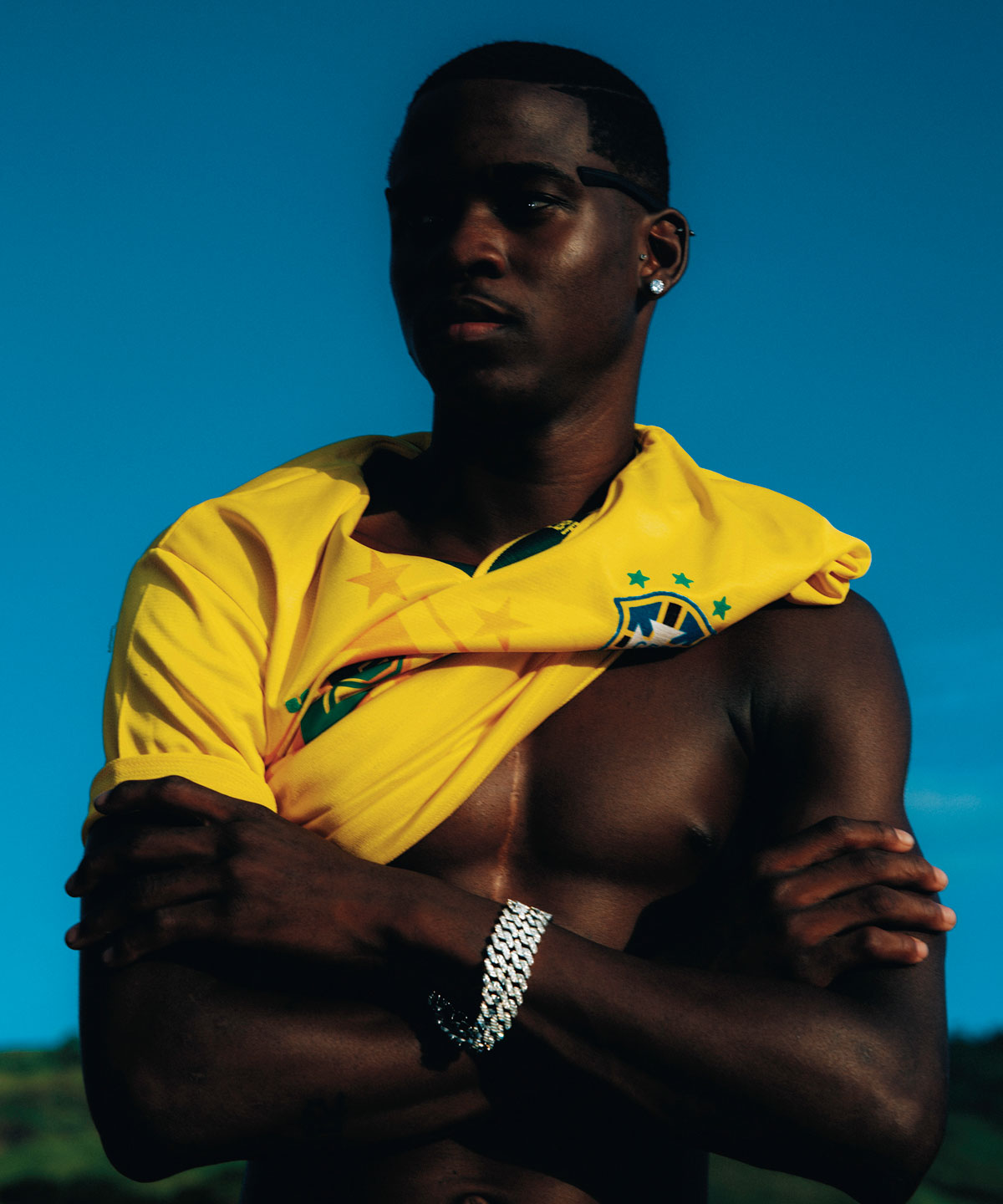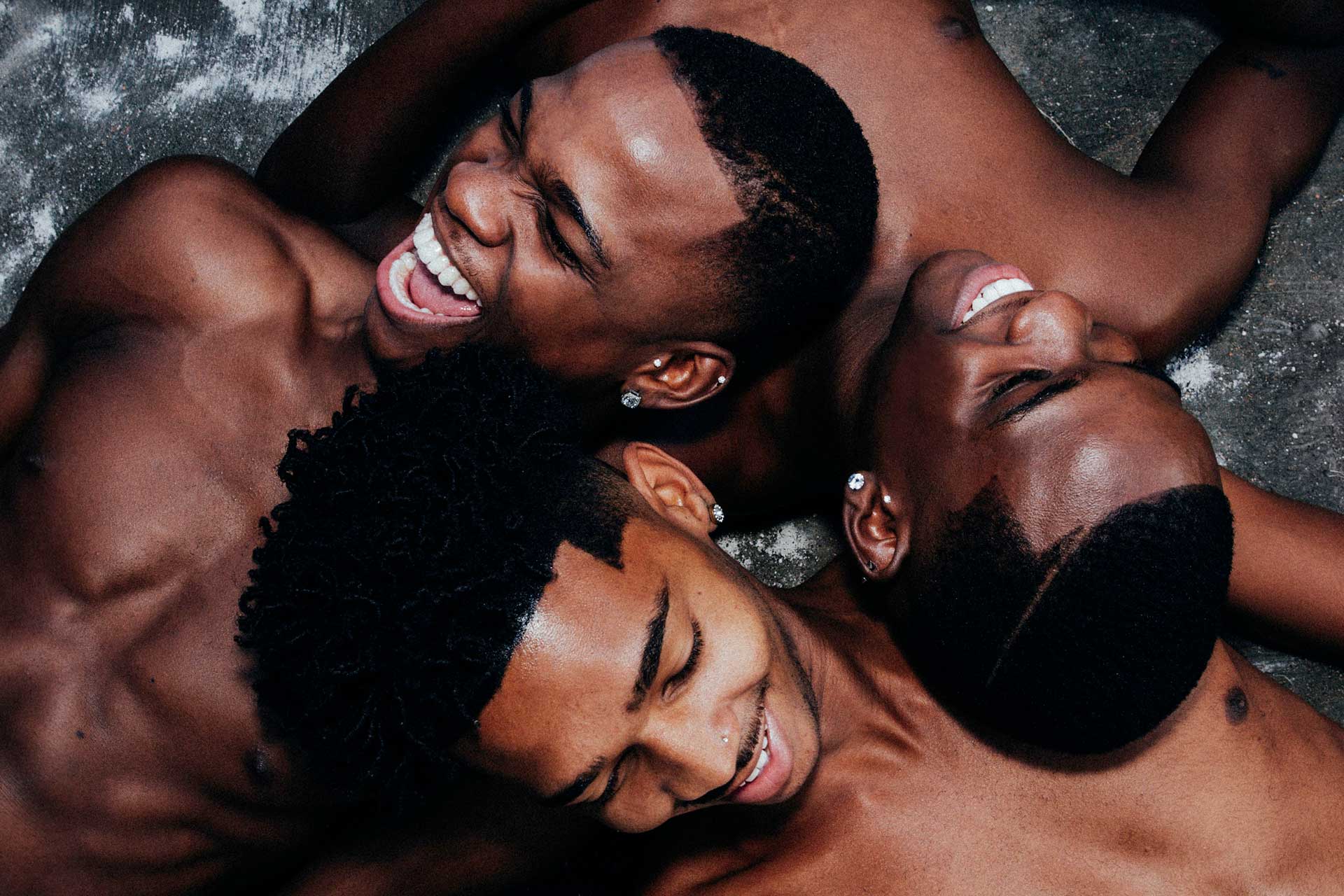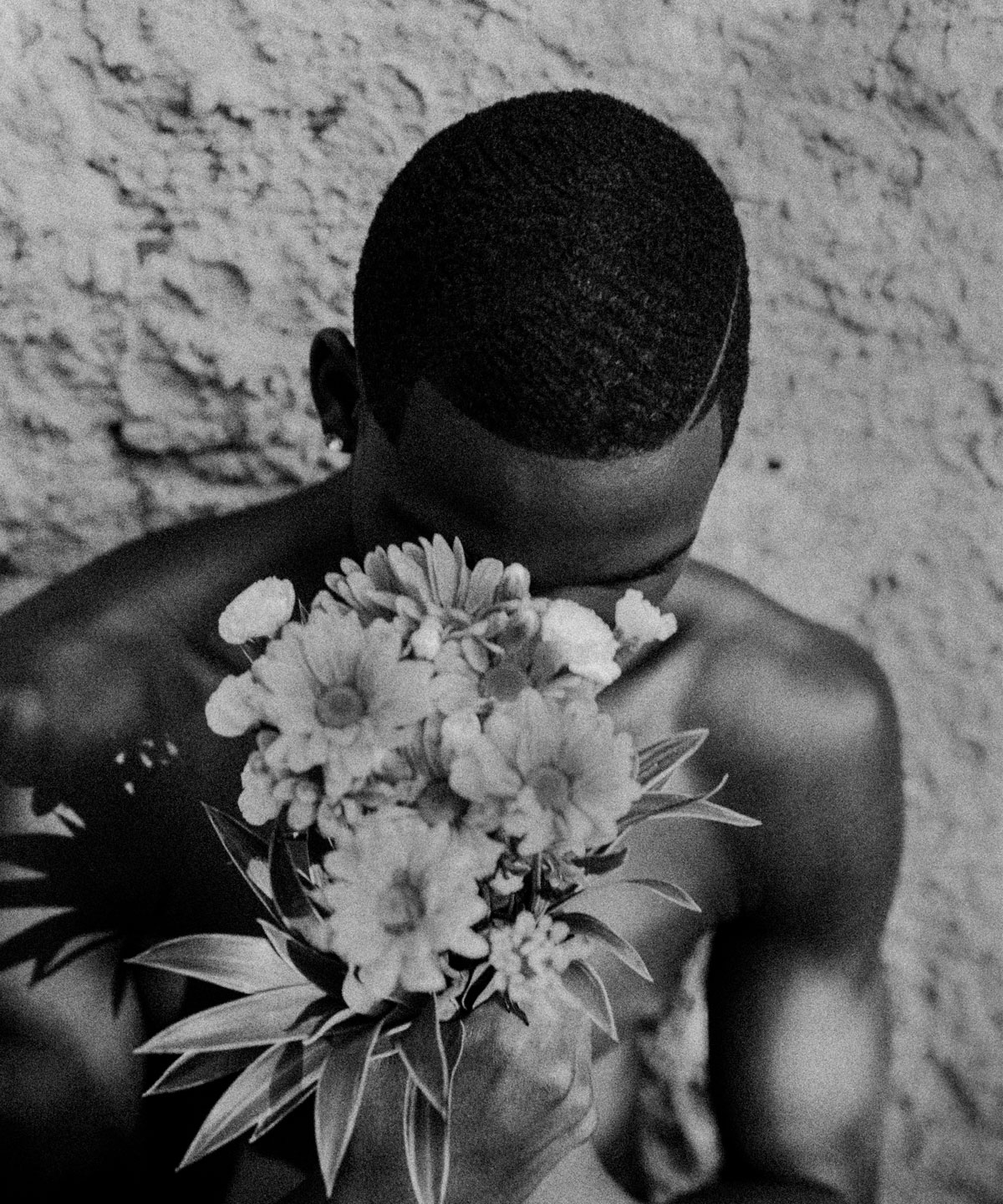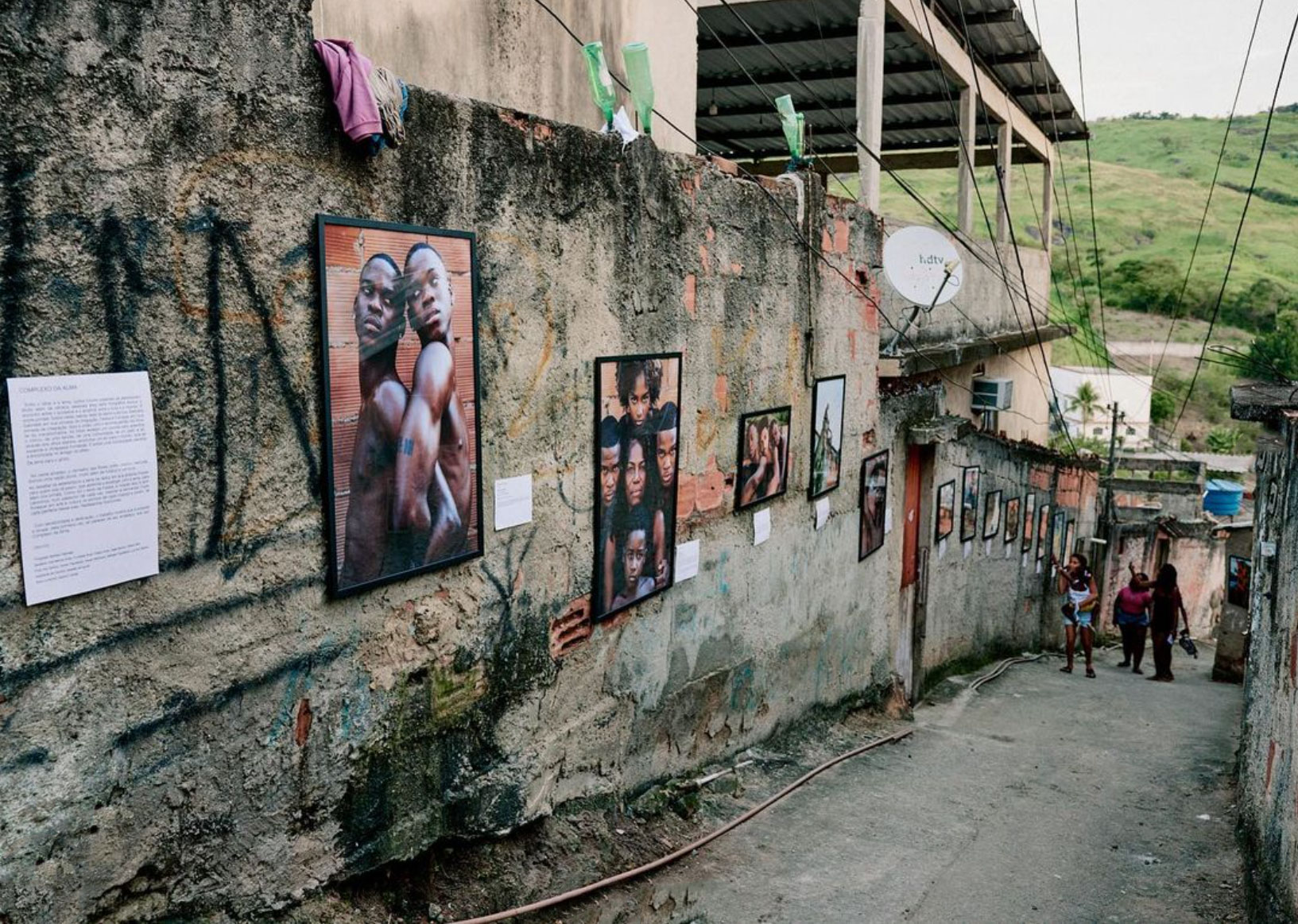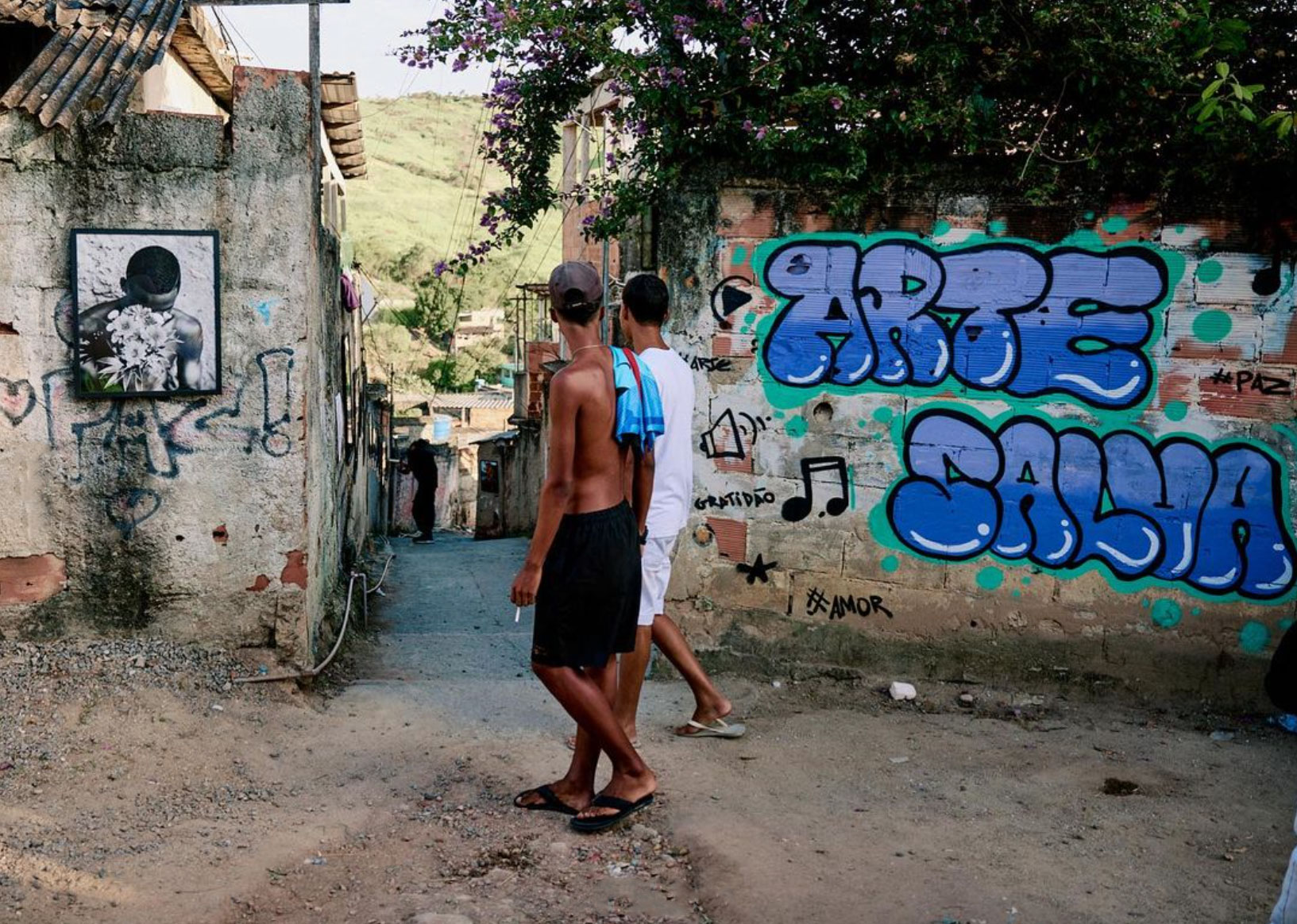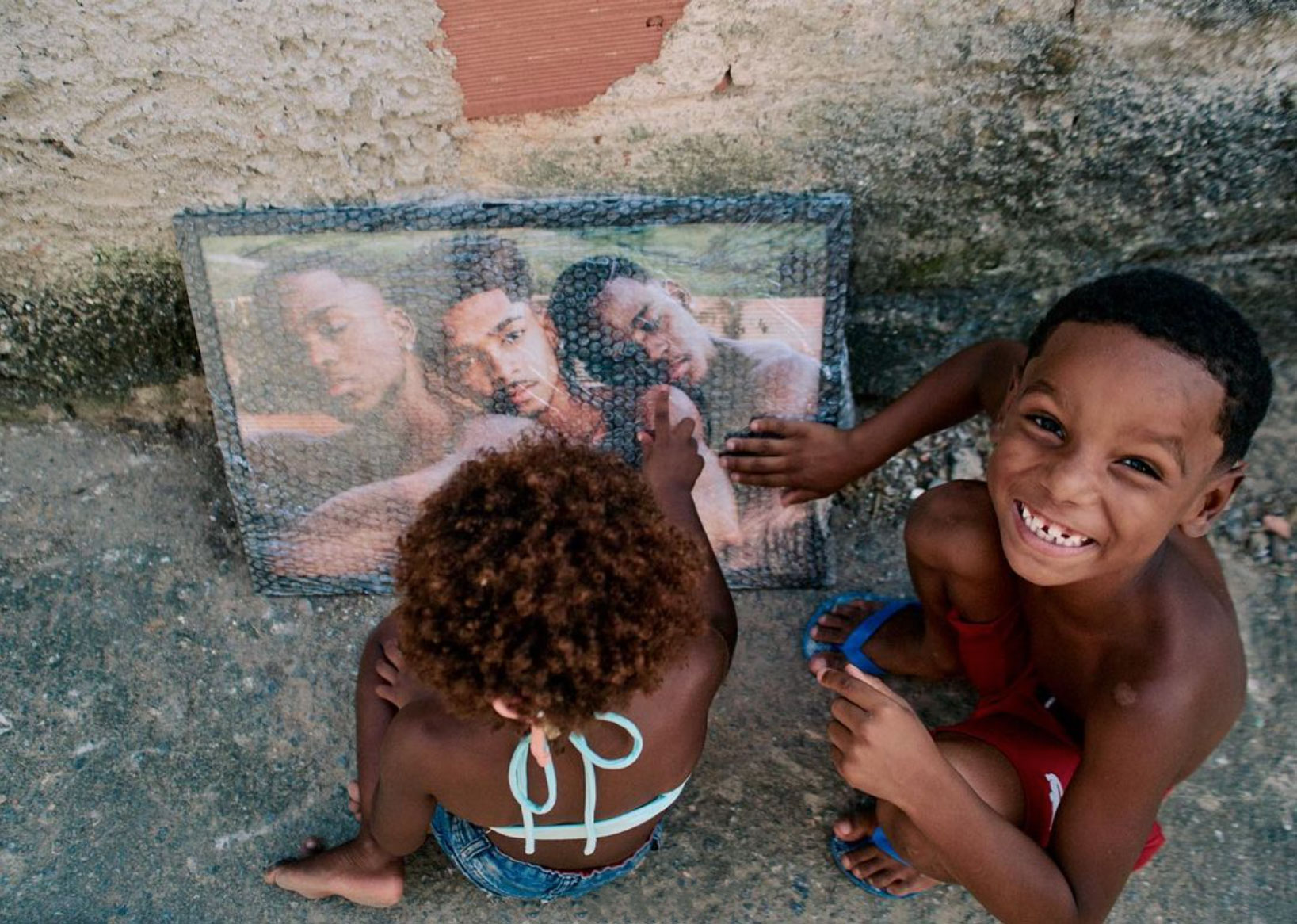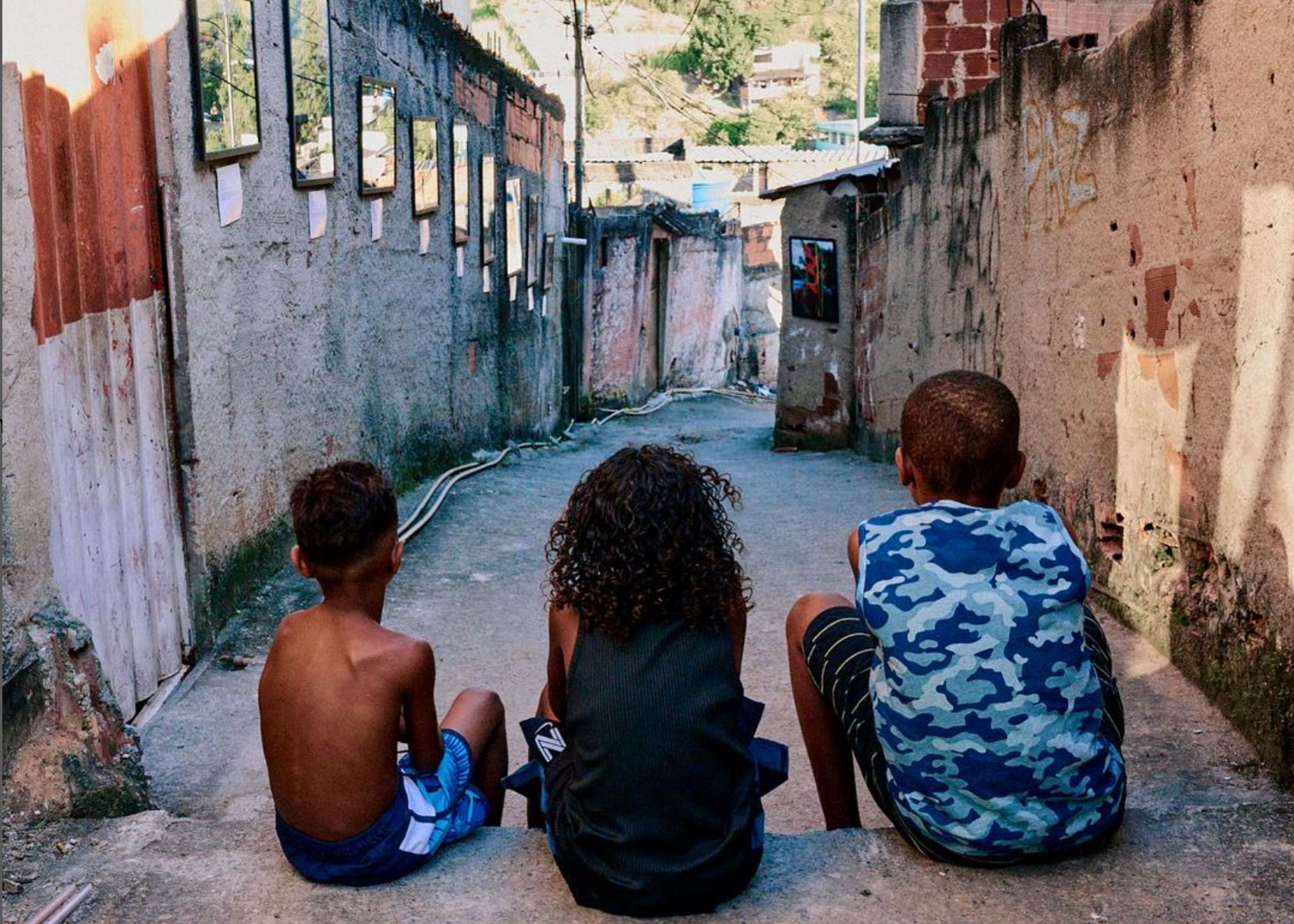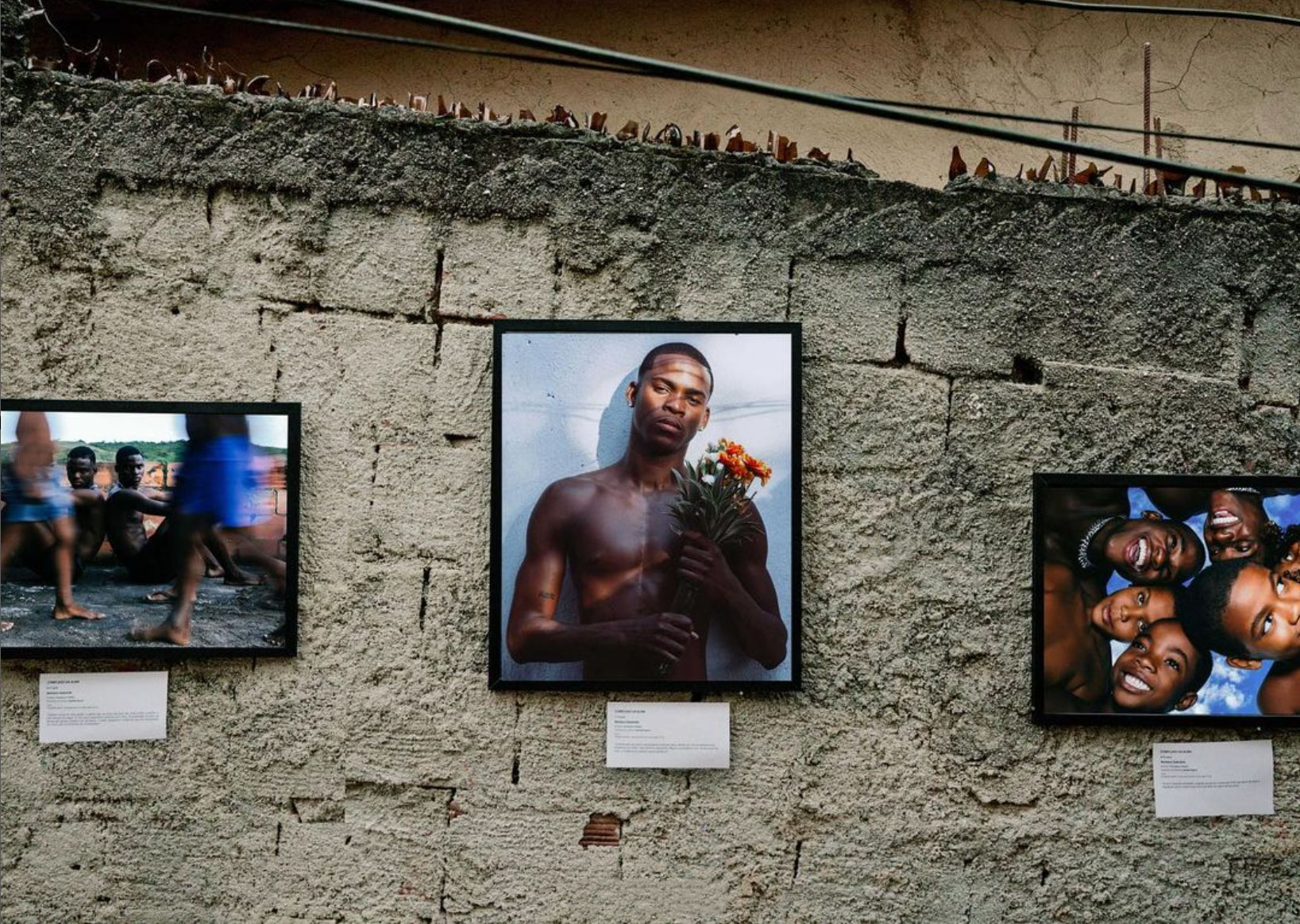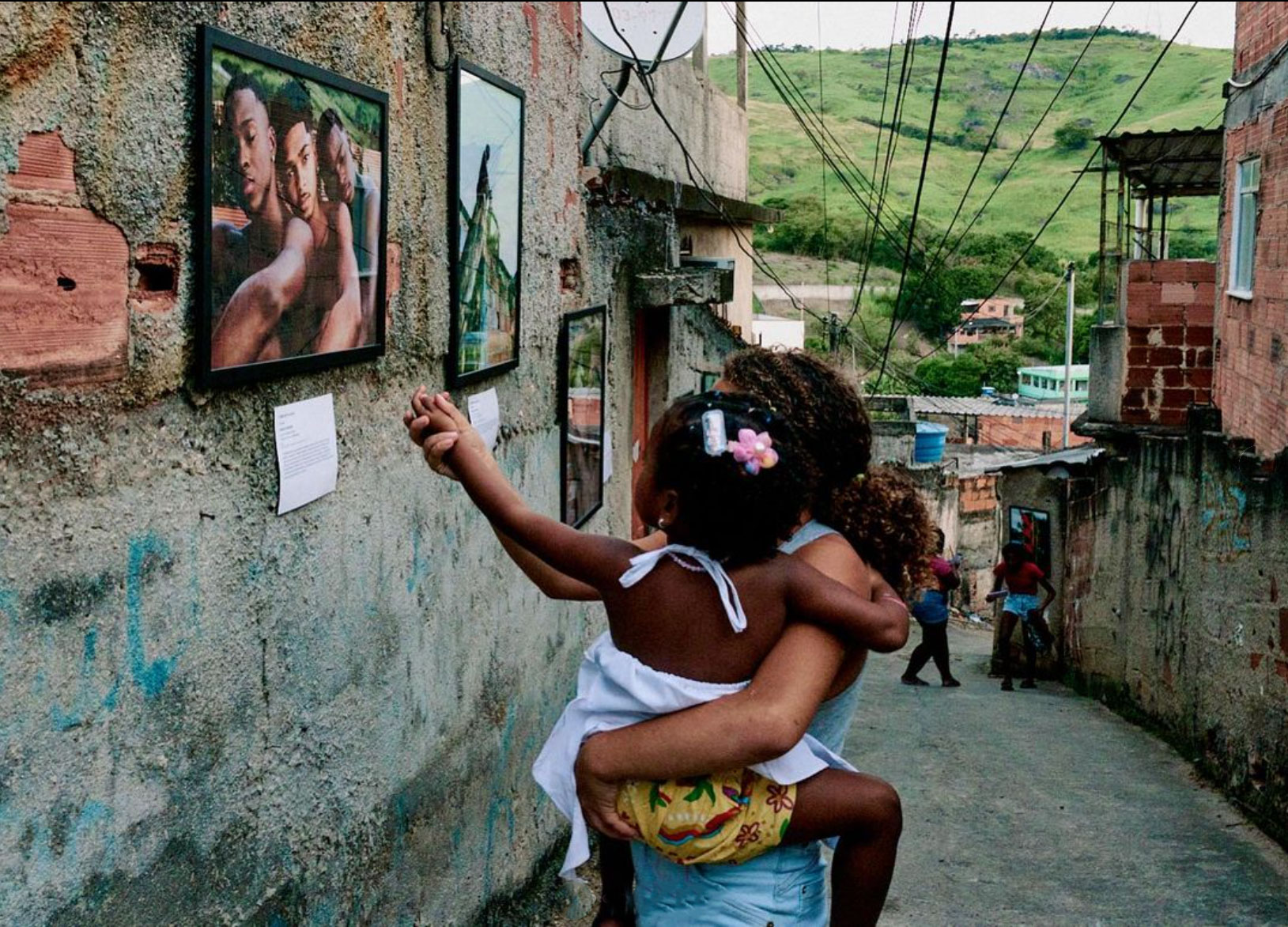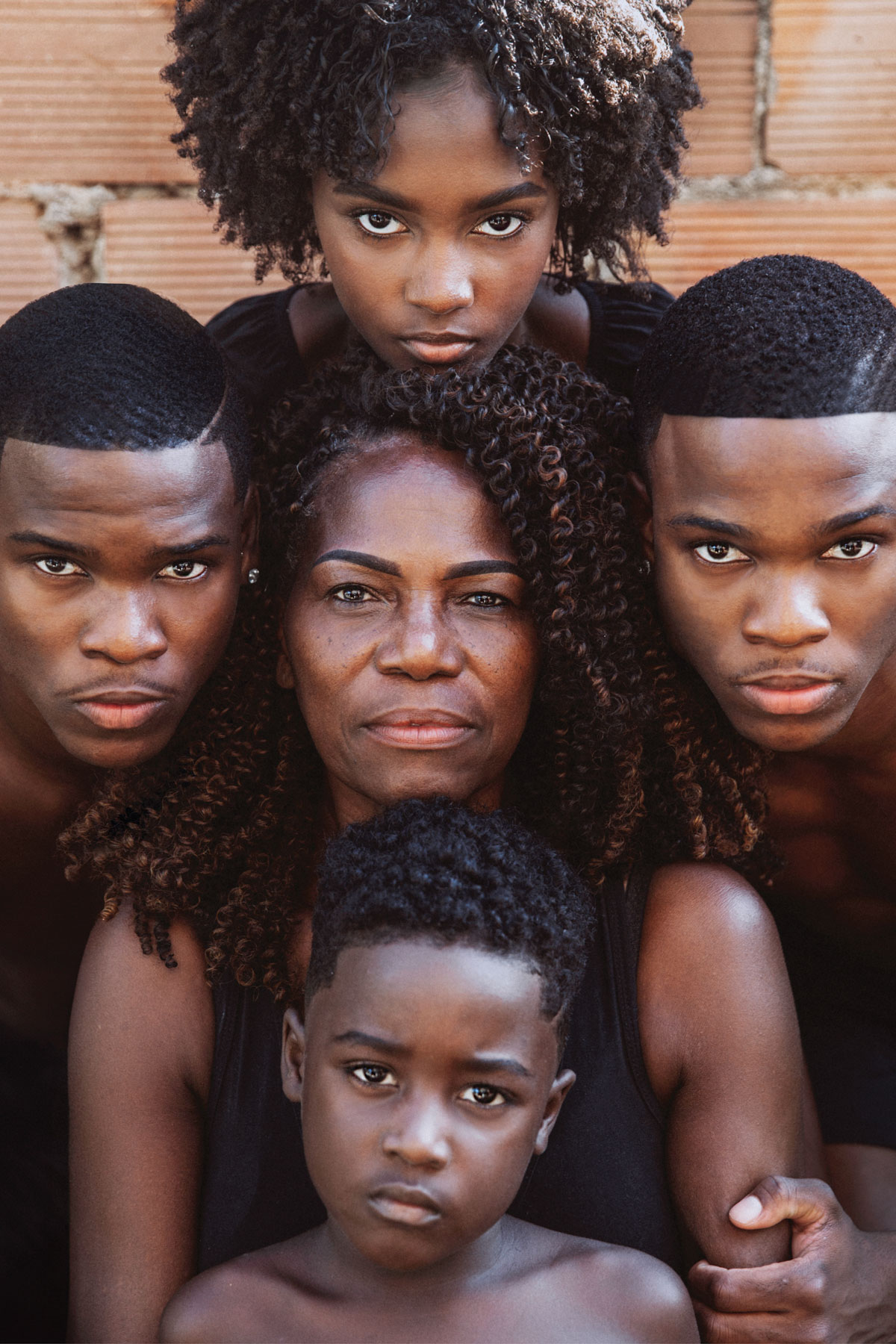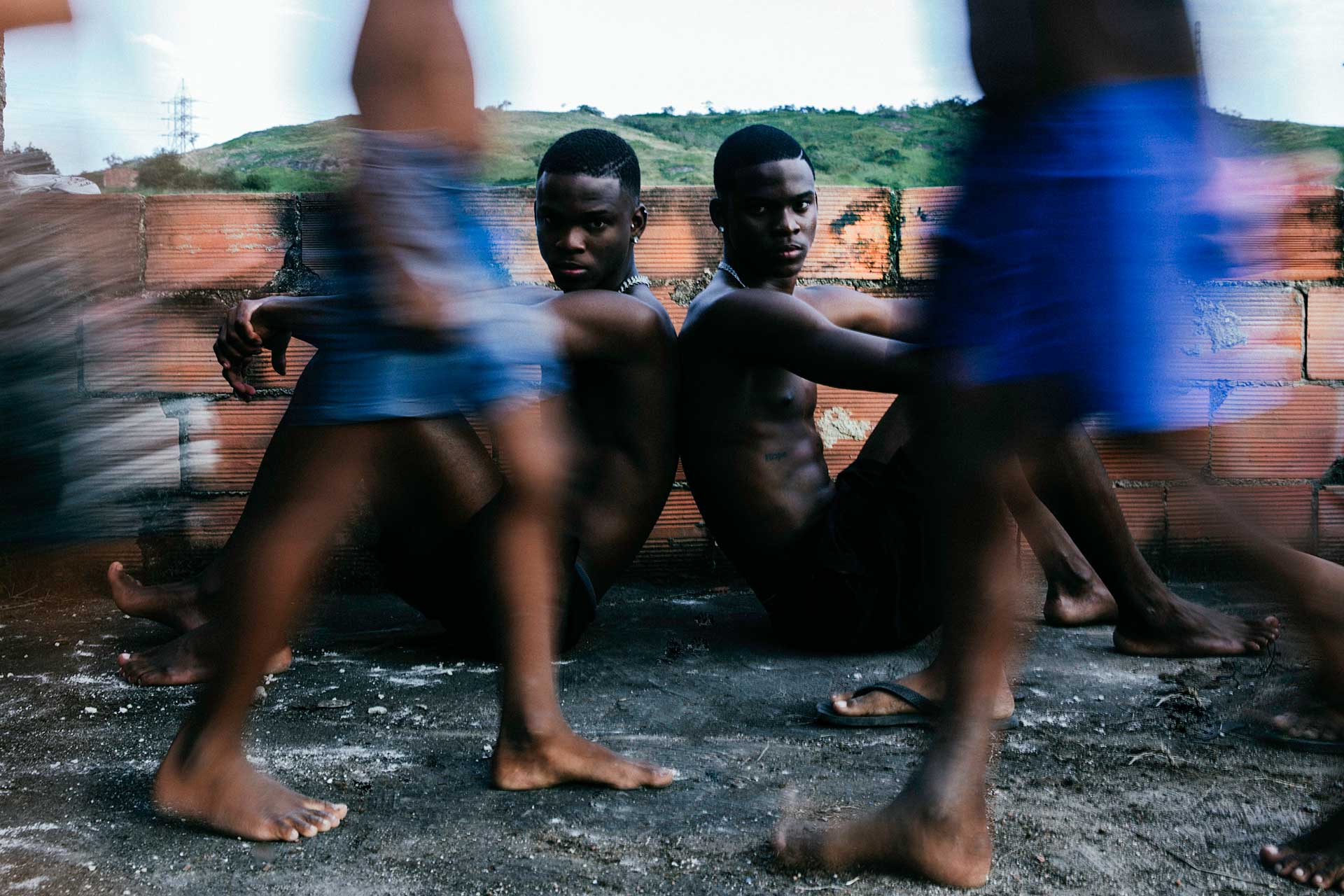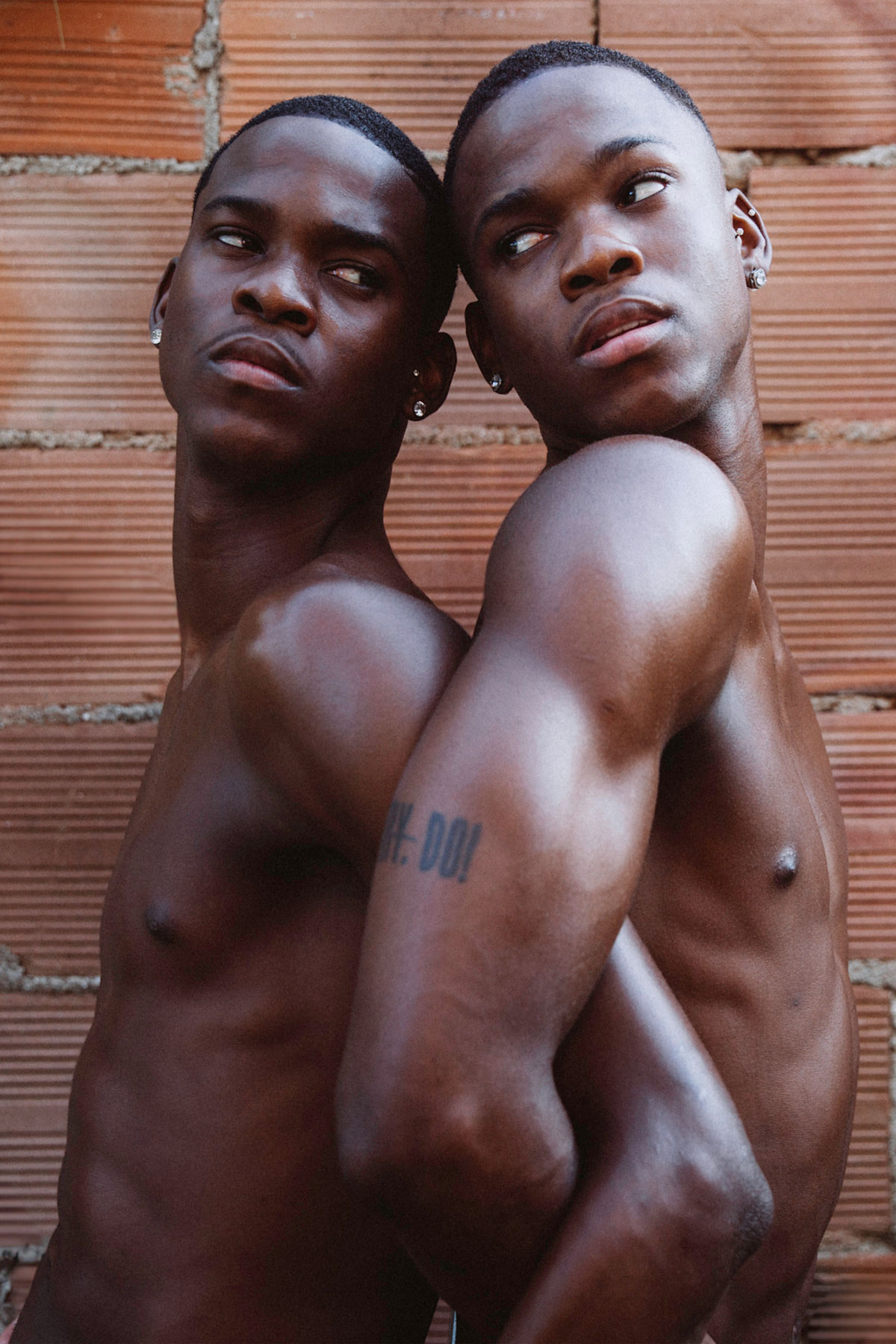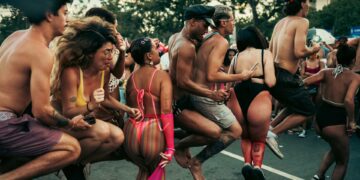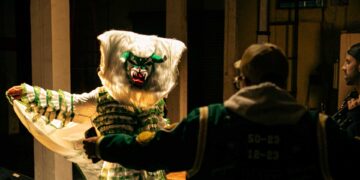As a Brazilian immigrant photographer living in the United States, I have a constant and growing desire to share traditionally unheard narratives, especially those related to Brazil. I aim to bring my lens closer to the “other” and de-objectify concepts created about various subjects.
As an independent photographer, I have a flexible routine that allows me to venture out with my camera and capture subjects and stories along the way. I see my studio as more than a space with four walls and a white backdrop—I consider the street to be a vast extension of what I would call “my studio.” It was this open and immersive approach that led me to meet film director Thatiane Almeida.
During a conversation with Thatiane about my desire to tell a relevant story about Brazil, she introduced me to the inspiring journey of Faiska and Fumassa. With her deep involvement in the communities of Rio de Janeiro, Thatiane revealed the story of resilience of these two brothers, who were born and raised in the favela known as “Complexo da Alma” (which roughly translates to “Complex of the Soul”). From this connection, the opportunity arose to document the lives of these artists and reveal the positive impact they have on their community.
Rio de Janeiro is known for its stunning landscapes, Carnival, samba, and favelas, which gained international recognition through films like “City of God.” For many Brazilians and foreigners, Carnival and football are often the most celebrated aspects of Brazilian culture, while favelas are frequently associated with violence. With this in mind, I felt the need to contribute to the deconstruction of these stereotyped concepts by showing the “other side of the coin.”
Favelas, often viewed from the outside as synonymous with violence and poverty, are actually vibrant and resilient communities. While they face significant challenges, such as lack of formal infrastructure and public services, they are rich in culture and community spirit. They are places where solidarity thrives and creativity finds unique forms of expression, particularly through music, dance, and art. These neighborhoods are the beating heart of Brazilian culture, housing a cultural diversity that is frequently underestimated or misunderstood.
Recently, there has been a significant increase in the visibility of Brazilian culture. The captivating rhythms of funk, originating from the favelas, along with a variety of musical styles, have echoed around the world, sparking greater interest in the cultural diversity that has often been portrayed in a manipulated or hidden way.
During my time in Rio de Janeiro, I had the honor of visiting the home of Fumassa and Faiska. These brothers are renowned in the dance style known as “Passinho,” which originated from the funk culture of Rio de Janeiro. In addition, they are complete artists, working as actors, models, and founders of the clothing brand Kebra. Faiska and Fumassa were born and raised in Complexo da Alma and continue to reside there. They seek to change misconceptions frequently associated with marginalized communities, and this project aims to advance toward that goal.
The first exhibition of the “Complexo da Alma” project was held within the favela itself, with the support of the entire community. This event not only highlighted the project but also represented a significant moment for the community, especially for the young people and children. It demonstrated the power of unity and self-representation, inspiring the youth by providing tangible examples of success and hope.
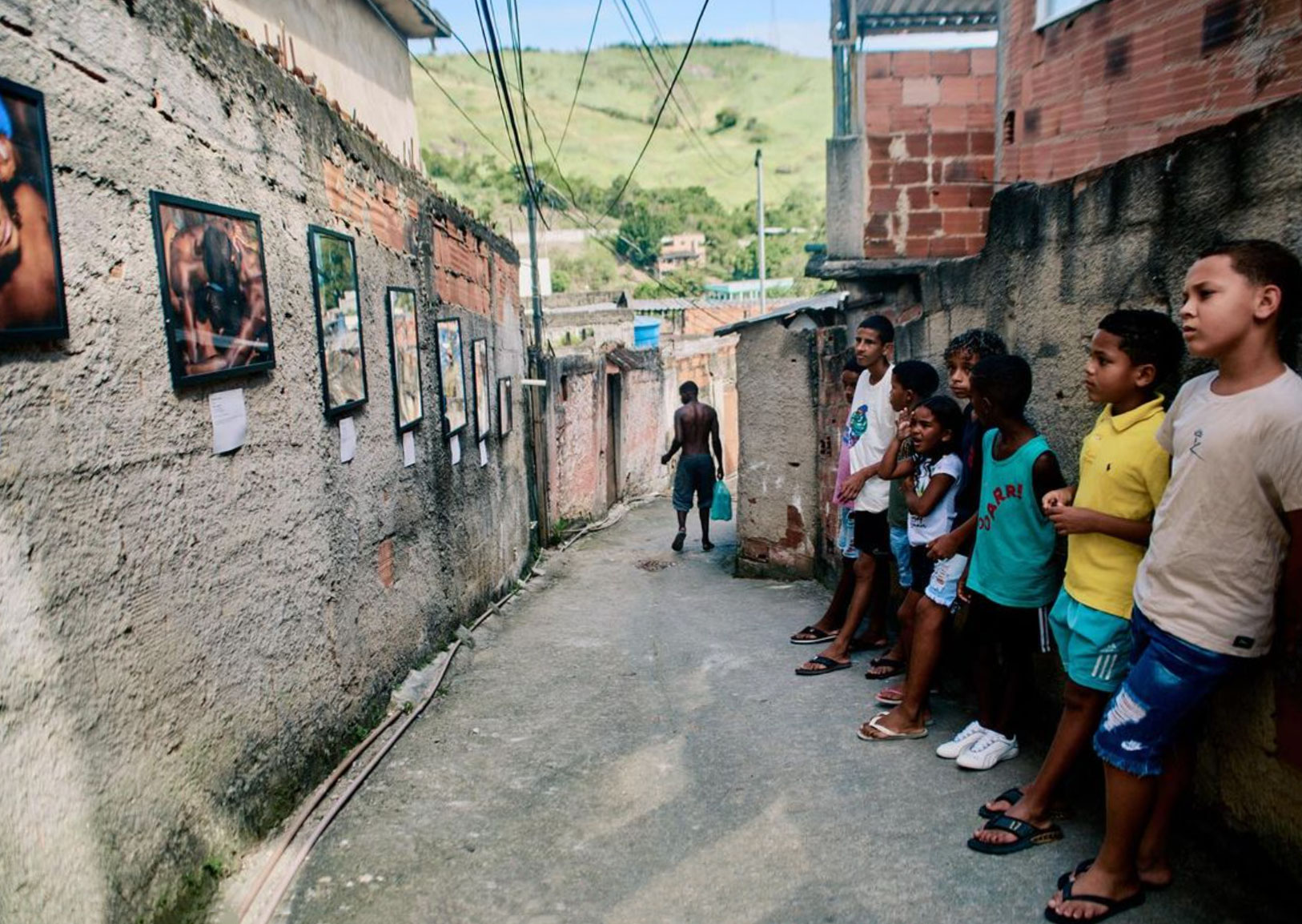
Fumassa (Wellington Santos) and Faiska (Jeferson Santos) are dedicated to demystifying the prejudices often associated with their communities. Despite the strong stigmas, they strive to reveal the rich and wonderful culture present in the favelas, highlighting sensitivity, art, love, and genuine smiles. Their efforts aim to inspire children to dream and show that behind the assumptions, there is a complex reality that deserves recognition.
Barbara Gabrielle is a passionate Brazilian queer photographer who tells stories through her lens. With a unique style and meticulous attention to detail, she captures authentic moments and evokes subtle emotions. Barbara’s work spans fashion, lifestyle, and artistic portraits, earning her recognition through exhibitions in London, New York, and Miami’s Art Basel. Her
photography has also been featured in international art magazines such as “Schön! Magazine,” “Vogue Magazine,” “Picton Magazine,” “Pap Magazine,” and “Purplehaze Magazine.”
Inspired by the world around her, Barbara connects and shares her perspective through glimpses of everyday moments, striving for meaningful interactions. Through her photography, she conveys sincere messages and provokes deep reflections in her viewers.
Photography: Barbara Gabrielle
Models: Carmelinda Alves, Fumassa Alves, Faiska Alves, Gege Santos, Cleiton Neri, Enzo dos Santos, Jordan Figueiredo, Kauan Machado, Kethelen Figueiredo, Luiz dos Santos.
Camera Assistant: Isabelle de Aguiar
Barbara Gabrielle is a passionate Brazilian queer photographer who tells stories through her lens. With a unique style and meticulous attention to detail, she captures authentic moments and evokes subtle emotions. Barbara’s work spans fashion, lifestyle, and artistic portraits, earning her recognition through exhibitions in London, New York, and Miami’s Art Basel. Her
photography has also been featured in international art magazines such as “Schön! Magazine,” “Vogue Magazine,” “Picton Magazine,” “Pap Magazine,” and “Purplehaze Magazine.”
Inspired by the world around her, Barbara connects and shares her perspective through glimpses of everyday moments, striving for meaningful interactions. Through her photography, she conveys sincere messages and provokes deep reflections in her viewers.
You can find out more about Barbara at @barbaragabriellee // www.barbaragabrielle.com.br

